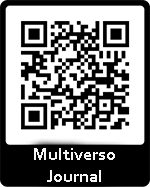Human migration: Recurrent dynamics in contemporary geopolitics and the defense of fundamental rights in the 21st century
DOI:
https://doi.org/10.46502/issn.2792-3681/2025.8.14Keywords:
critical thinking, human dignity, natural migrations, geopolitics of borders, human rightsAbstract
Beyond the legal fictions internalized in uninformed public opinion, planet Earth constitutes a geographical totality dominated by the biosphere, an interconnected system that sustains life in its multiple forms. Following the coordinates of Foucault's, 1988, critical analysis, despite this essential ontological unity, human beings have historically divided the world through (artificial) political and juridical borders that reflect the fiction of power and domination of nation-states and, moreover, of their constituent elites. In this order of ideas, the objective of this research was to reflect on the fact that all migrations of living beings, especially human ones, are a process inherent to nature and should be understood, consequently, from a natural perspective as a sociopolitical expression that prioritizes human dignity over any other situation of territorial control. In a critical tone, it is concluded that the migratory justice of the 21st century must be built on three pillars: recognizing the historical debt of countries enriched by colonialism and extractivism; guaranteeing biocultural passports that allow safe mobility, and creating transnational institutions of governance based on planetary hospitality.
References
Casas Cortés, M., & Cobarrubias Baglietto, S. (2022). La migración como factor geopolítico: Una aproximación desde la autonomía de la migración. Scripta Nova, 26(01), 119-142. https://revistes.ub.edu/index.php/ScriptaNova/article/view/33950/37860
Cataño Pulgarín, S. V., & Morales Mesa, S. A. (2015). La migración de retorno. Una descripción desde algunas investigaciones latinoamericanas y españolas. Revista Colombiana de Ciencias Sociales, 6(1), 89-112. https://www.redalyc.org/pdf/4978/497856276007.pdf
Diamond, J. (2007). Colapso Por que unas sociedades perduran y otras desaparecen. Bogotá: DeBolsillo.
Dussel, E. (2001). Hacia una filosofía política crítica. Bilbao: Editorial Desclee de Brouwer.
Ernst, M. (2013). International migration as absolute natural law: An inquiry into international migration from the perspective of legal philosophy. Hampshire: Ashgate Publishing, Ltd. https://acortar.link/LD00hu
Foucault, M. (1988). El sujeto y el poder. Revista Mexicana de Sociología, 50(3), 3-20. https://perio.unlp.edu.ar/catedras/wp-content/uploads/sites/96/2020/03/T-FOUCAULT-El-sujeto-y-el-poder.pdf
Horta, J. L (2022). La autonomía Política del Caribe Norcontinental colombiano. (Tesis Doctoral), Universidad de Zulia, Maracaibo.
Huntington, S. P. (2001). El choque de civilizaciones y la reconfiguración del orden mundial. Buenos Aires: Paidós.
Kottak, C. P. (2007). Introducción a la antropología cultural Espejo para la humanidad. Madrid: Mc Graw Hill.
Le Dantec, F. (2007). Contribución de la geopolítica crítica a la comprensión de la actual concepción de seguridad. Revista Política y Estrategia, (108), 71-82.
Naciones Unidas. (2018). Pacto Mundial para una Migración Segura, Ordenada y Regular (GCM). Obtenido de El ACNUDH y la migración: https://www.ohchr.org/es/migration/global-compact-safe-orderly-and-regular-migration-gcm
Petit, J. M. (2003). Migraciones, vulnerabilidad y políticas públicas. Impacto sobre los niños, sus familias y sus derechos. Banco Interamericano de Desarrollo (BID). https://repositorio.cepal.org/server/api/core/bitstreams/7a943e38-39c5-41ee-a9b6-c487fc5f4fba/content
Roberts, J. M. (2009). Historia Universal. II. Dl nacimiento del islam a la Europa Moderna. Barcelona: RBA.
Stiglitz, J. E. (2015). El precio de la desigualdad El 1% de la población tiene lo que el 99% necesita. Bogotá: Taurus.
United Nations Environment Programme. (2023). Human Migration and Natural Resources. Global Assessment of an adaptive complex system. https://acortar.link/3X6pMj
Published
How to Cite
Issue
Section
License
Copyright (c) 2025 Jorge Luís Horta Orozco

This work is licensed under a Creative Commons Attribution 4.0 International License.
The authors who publish in this journal agree to the following terms:
The authors retain copyright and guarantee the journal the right to be the first publication where the article is presented, which is published under a Creative Commons Attribution License, which allows others to share the work prior to acknowledgment of the authorship of the article. work and initial publication in this journal.
Authors may separately enter into additional agreements for non-exclusive distribution of the version of the work published in the journal (for example, placing it in an institutional repository or publishing it in a book), with an acknowledgment of its initial publication in this journal.



















